When it comes to safeguarding your cryptocurrency, there’s one golden rule: never lose your recovery phrase. It doesn’t matter how advanced your hardware wallet is, Ledger, Trezor, or any other, if you lose the 12 or 24 words that act as your master key, your digital assets are gone for good. Most beginners start with a paper backup, but anyone who has held crypto long enough knows that paper won’t survive fire, water, or even the simple wear of time. That’s where metal backups come into play.
The Cryptotag Loki is one of the latest solutions designed specifically to tackle this problem. Made from solid titanium, Loki isn’t just about keeping your recovery phrase safe; it’s built to withstand the most extreme conditions: fire, corrosion, flooding, and crushing weight. Where its sibling, the Cryptotag Zeus, focuses on hammer-and-punch engraving, Loki takes a more compact and stealthy approach to securing your seed words. For crypto investors who value long-term security without fuss, Loki promises peace of mind in a sleek, portable form.
This review will walk you through every detail of the Loki, its build, setup process, security promise, real-world durability, pricing, and whether it’s the right backup system for your crypto portfolio. By the end, you’ll know if this product is worth your money or if another alternative, like the Zeus or a steel-based competitor, fits your needs better.
Quick Summary
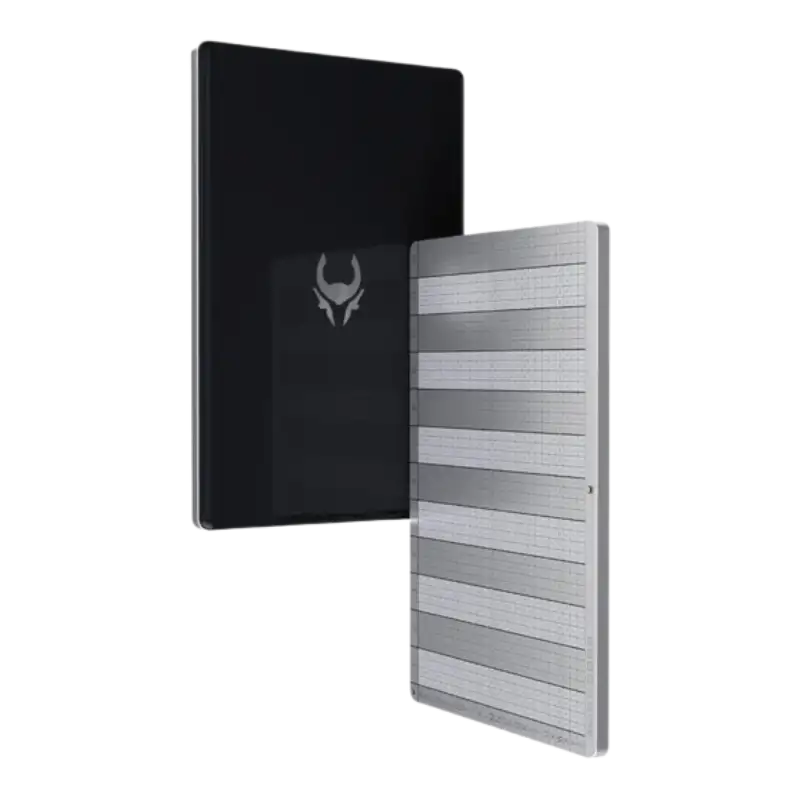
The Cryptotag Loki is a titanium backup solution designed to keep your crypto recovery phrase safe from disasters like fire, water damage, and corrosion. Unlike traditional paper backups, Loki offers near-indestructible storage in a sleek, portable design. It’s aimed at investors who want peace of mind without the bulk of larger solutions like the Zeus.
| Feature | Details |
|---|---|
| Material | Premium titanium (resistant to fire, corrosion, crushing) |
| Supported Standard | BIP39 (works with Ledger, Trezor, MetaMask, and most wallets) |
| Setup | Easy to use with included tools; discreet and portable design |
| Durability | Withstands extreme heat, water, and physical damage |
| Price | €99 (approx. $100–$110, depending on region) |
| Best For | Long-term holders, disaster-proof backups, minimalistic crypto users |
The Good
The Bad
You’ll Need One of These Ledger Wallets,
Ledger Nano X
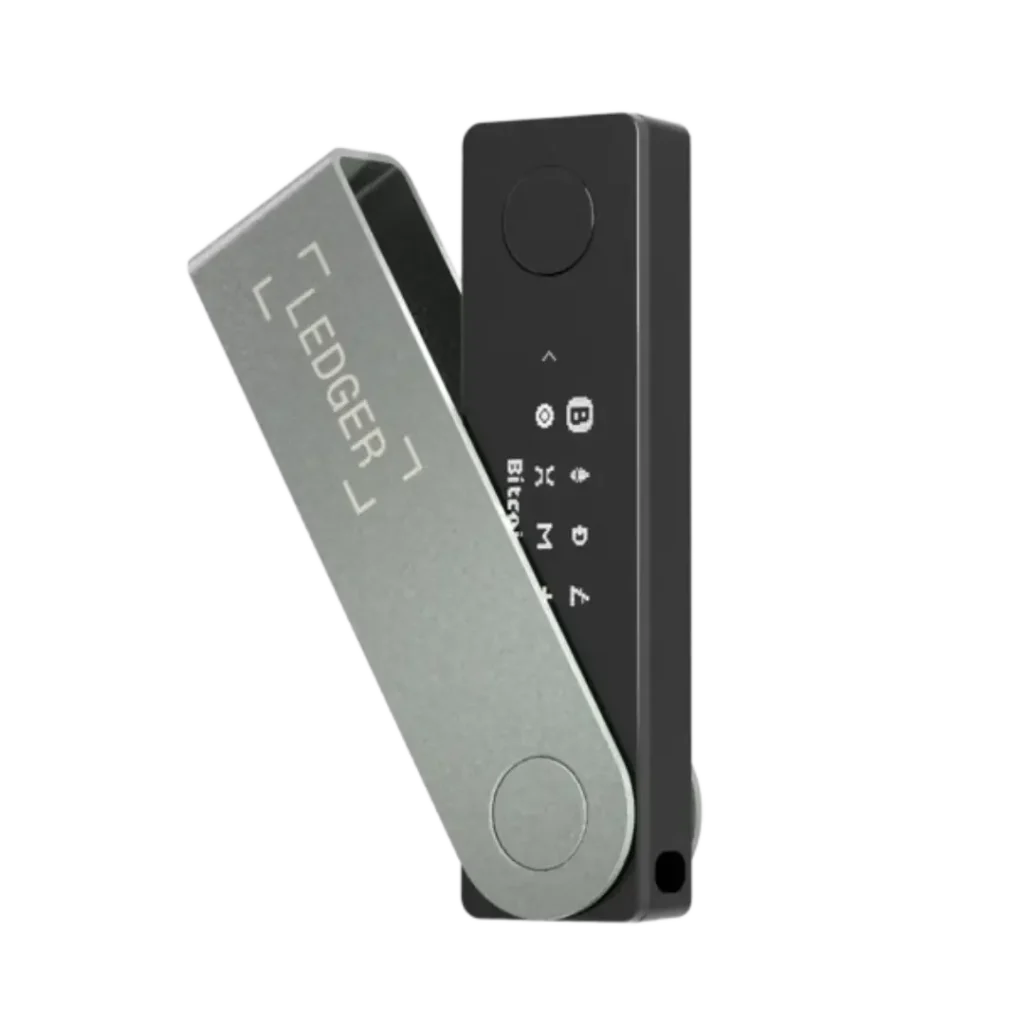
Ledger Stax
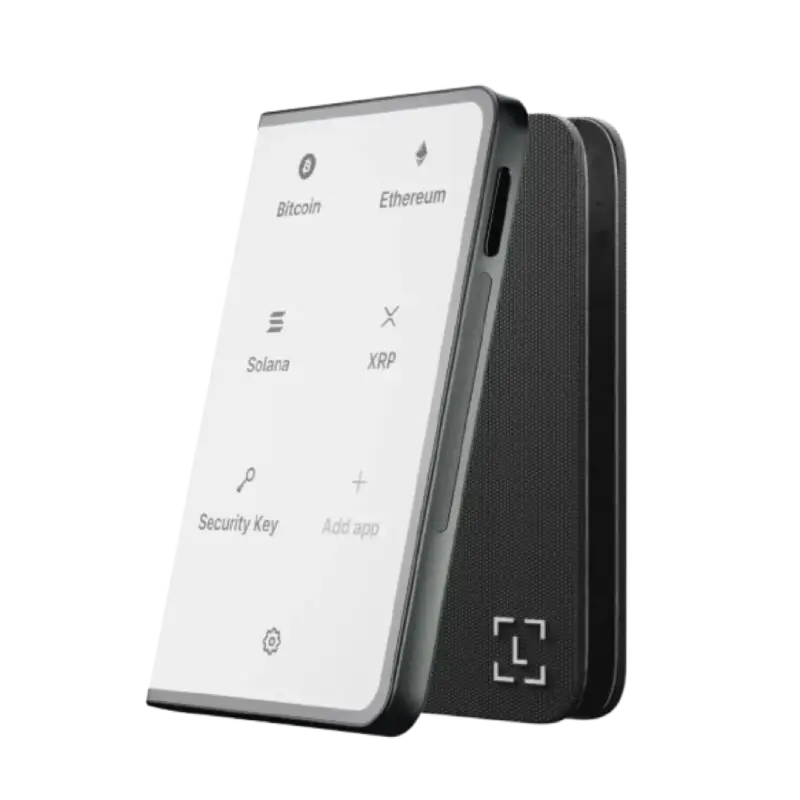
Ledger Nano S+
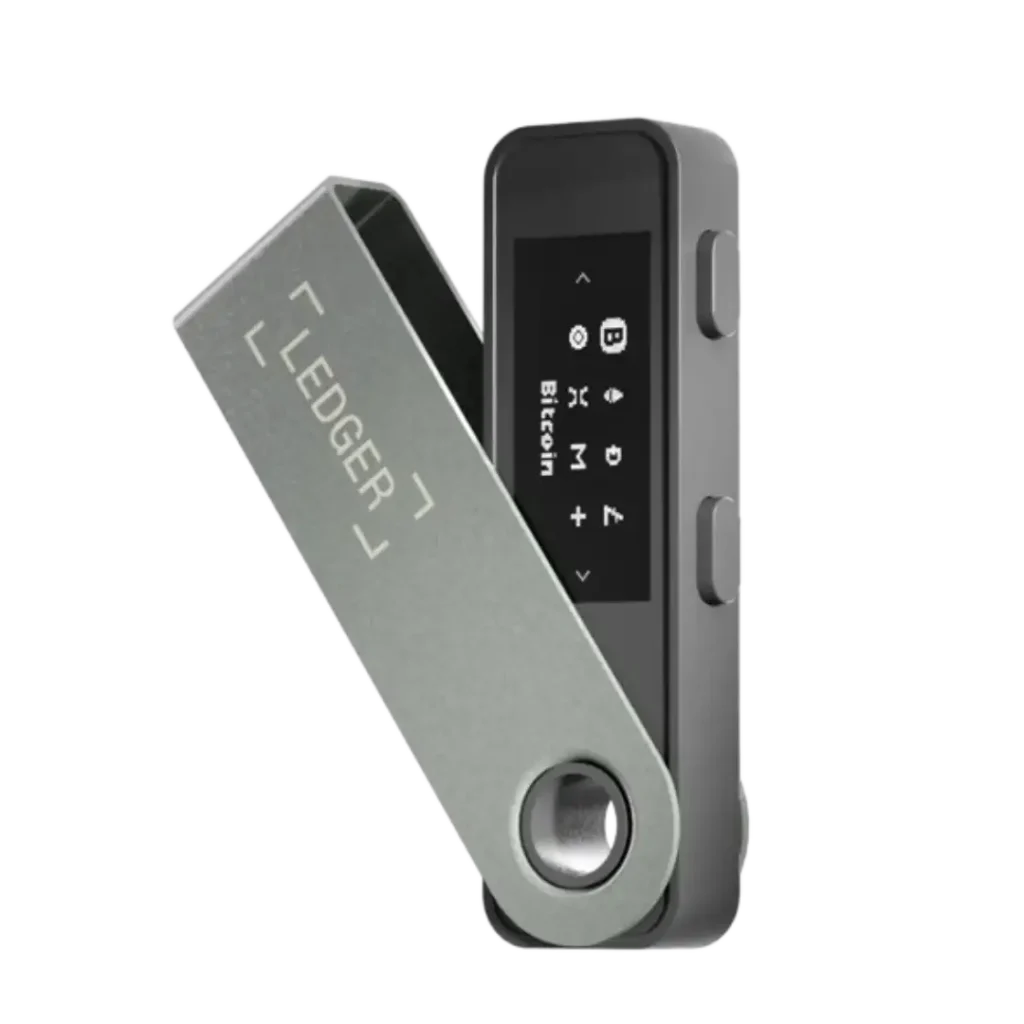
Ledger Flex
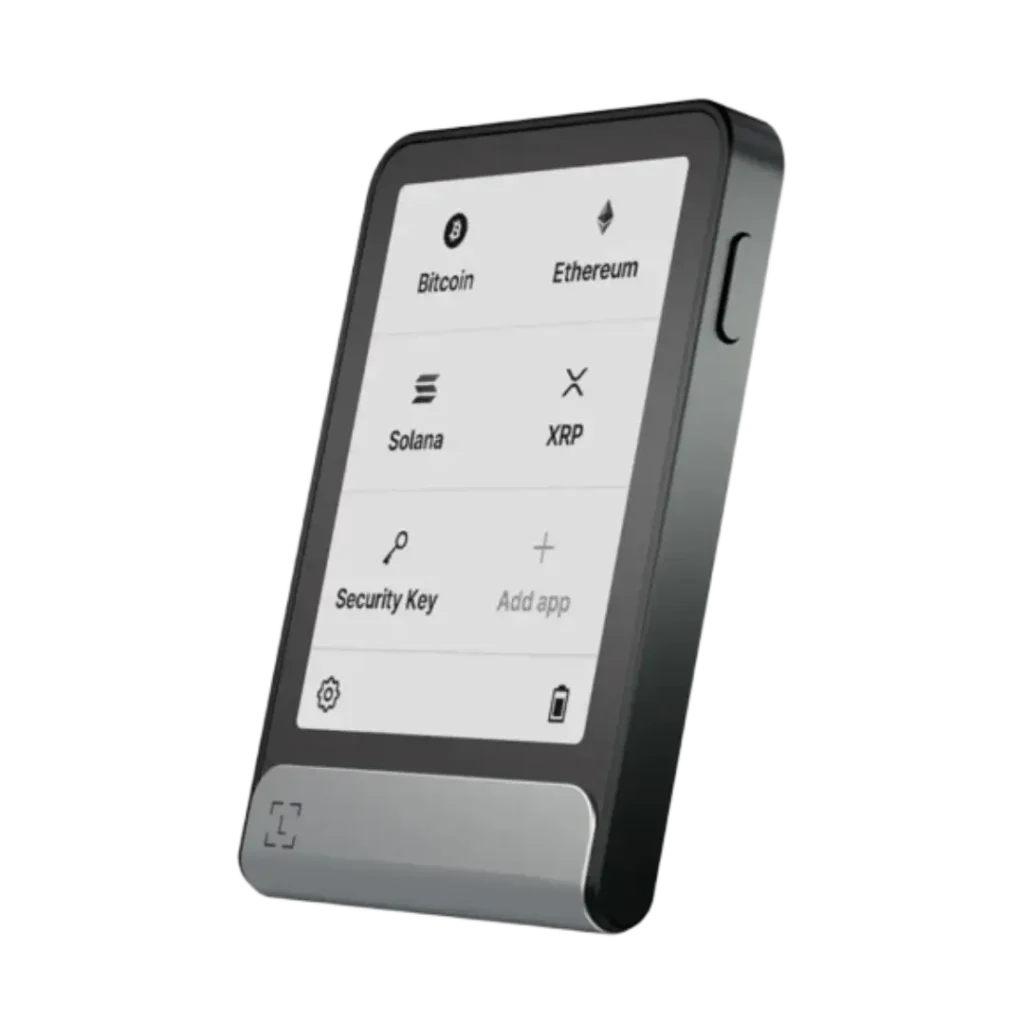
What is Cryptotag Loki?
The Cryptotag Loki is a titanium seed phrase backup system designed to protect cryptocurrency recovery keys from disasters. In simple terms, it’s not a wallet; it doesn’t hold your coins directly. Instead, it acts as a permanent and nearly indestructible notebook for your recovery phrase, the 12–24 words you receive when setting up a wallet like Ledger, Trezor, or MetaMask. If your device breaks or gets stolen, this phrase is the only way to recover your funds. Loki’s job is to make sure those words never disappear.
Where the Cryptotag Zeus popularized the idea of stamping seed words into titanium using a hammer and punch tool, Loki takes a more minimalist and practical approach. It’s slimmer, easier to carry, and designed with a simpler user experience in mind. While Zeus is the “flagship heavy-duty” option for people who enjoy a hands-on engraving ritual, Loki is more about portability and discretion. It doesn’t scream “I’m a crypto backup” the way larger, chunkier plates might.
From a design standpoint, Loki represents Cryptotag’s effort to balance extreme durability with everyday practicality. Instead of targeting only hardcore security enthusiasts, Loki is made for the average crypto user who wants professional-grade protection without unnecessary bulk. It’s especially appealing to people who live in apartments, travel frequently, or want to keep a backup hidden in a small safe.
In short, Loki is Cryptotag’s compact solution to one of crypto’s biggest pain points: ensuring that your recovery phrase remains safe, no matter what happens. It stands apart not only because of its material strength but also its thoughtful design that fits modern crypto lifestyles.
Build Quality & Materials
The first thing that sets the Cryptotag Loki apart is its titanium build. Titanium isn’t just a marketing term here; it’s a material chosen for its unique resilience against the most common and destructive threats to recovery phrases. While paper backups can burn, smudge, or deteriorate with moisture, and even steel plates can rust or deform under pressure, titanium offers a higher level of endurance.
Titanium is known for its extremely high melting point of around 1,668°C (3,034°F), which means it can survive house fires and extreme heat scenarios where both paper and lesser metals fail. It’s also corrosion-resistant, so even in humid environments or potential flooding, Loki’s engravings remain intact. Unlike softer metals, it won’t warp easily under pressure, making it reliable against crushing forces that could occur in accidents or natural disasters.
Cryptotag also emphasizes precision in its finish. Loki isn’t just a slab of metal; it’s engineered to look and feel premium while remaining discreet. The edges are smooth, the engraving area is optimized, and the titanium has a clean, matte-like appearance that doesn’t attract unwanted attention. This makes Loki practical not just as a backup, but as something you can confidently store in a safe, drawer, or even travel with.
Compared to the Zeus, which comes with a more ritualistic hammer-and-punch system, Loki is compact and minimalistic, prioritizing portability and storage over showmanship. Compared to budget steel backups, it carries a significantly higher resistance to both fire and corrosion, which is why it’s marketed as a premium, long-term solution rather than a one-time, low-cost fix.
In essence, the build quality of Loki isn’t just about toughness; it’s about combining durability, usability, and design elegance in a way that feels aligned with the needs of everyday crypto holders who want security without the industrial bulk.
Setup Process
Setting up the Cryptotag Loki is designed to be as straightforward as possible, especially compared to more complex engraving systems. The process revolves around transferring your recovery phrase from paper (or your device screen) into the titanium plate using the tools provided.
When you open the Loki package, you’ll typically find the titanium plates, a marking or engraving tool, and instructions. Unlike the Zeus, which requires a hammer and punch system to stamp letters into metal, Loki’s setup is quieter, cleaner, and more discreet. You don’t need to make noise or deal with heavy tools, an important detail if you live in an apartment or simply prefer not to attract attention while working on something so sensitive.
The basic flow looks like this:
- Prepare Your Recovery Phrase: Write your 12 or 24 BIP39 seed words on paper temporarily (or keep your wallet open) so you can reference them.
- Engrave or Mark the Words: Use the included tool to inscribe each word onto the Loki plate. The titanium surface is built to hold the markings permanently, resisting wear and environmental damage.
- Double-Check for Accuracy: This is where most mistakes happen. Since there’s no undo button, you’ll want to carefully verify that every word matches exactly before moving on.
- Store Loki Securely: Once finished, Loki should be placed in a safe or other secure location. Some users opt for bank deposit boxes, while others prefer hidden storage at home.
The design makes it possible for both beginners and advanced crypto holders to set it up without much friction. Beginners will appreciate the minimal learning curve, while advanced users who may have tried Zeus or other heavy-duty engravers will notice Loki’s lightweight and portable approach.
The key here is that Loki balances ease of use with long-term permanence. You don’t need special training or equipment to set it up, but once it’s done, you have the confidence that your seed phrase is preserved in a medium that can survive disasters.
Security Features
The Cryptotag Loki is built around one core promise: once your recovery phrase is recorded onto its titanium plates, it should survive virtually anything nature or accidents throw at it. Unlike a hardware wallet that actively encrypts and manages private keys, Loki is a passive security layer, a permanent, physical safeguard for your seed words.
Here’s what it offers:
- Disaster Resistance: Titanium’s high melting point (~1,668°C) means Loki can withstand fires that would destroy paper or plastic backups. It also resists corrosion, making it safe against floods or long-term humidity exposure.
- Physical Durability: The plate doesn’t bend or break under heavy weight, giving protection from crushing or accidental impact.
- Compatibility Security: Because it supports the BIP39 standard, Loki works universally across popular wallets like Ledger, Trezor, MetaMask, and more. This ensures you won’t be “locked out” by future wallet changes.
At the same time, there are limitations. Loki doesn’t encrypt your phrase, nor does it stop someone from accessing it if they find the plate. Its security depends entirely on where and how you store it. If someone physically gains access to the engraved plate, your recovery phrase could be compromised.
| Threat / Risk | Protection with Loki | Notes |
|---|---|---|
| Fire / Extreme Heat | Withstands up to ~1,668°C (titanium) | Far beyond house fire conditions. |
| Water / Flooding | Fully resistant | No corrosion, seed remains intact. |
| Corrosion / Rust | Titanium resists rust entirely | Long-term durability even in humid storage. |
| Crushing / Impact | High structural strength | Won’t easily deform or bend under pressure. |
| Theft / Unauthorized Use | Not protected | If stolen, the seed words are exposed. |
| Encryption | Not included | Loki is passive, relies on secure physical storage. |
Loki, therefore, excels at disaster-proofing your crypto but does not eliminate the need for good operational security. Users must store it wisely, ideally in a safe, vault, or multiple backup locations, to ensure it cannot be accessed by others.
Durability Testing & Real-World Scenarios
One of the strongest reasons to choose the Cryptotag Loki over paper or budget steel backups is its ability to withstand real-world disasters. In controlled tests and community demonstrations, Loki has shown that its titanium build can survive conditions that would destroy almost any other form of seed storage.
Fire Resistance: Titanium’s melting point of around 1,668°C is far beyond the temperature of a typical house fire, which usually peaks at 600–800°C. This means that even if your home is completely engulfed, Loki remains intact with your recovery phrase legible. Unlike stainless steel, which can warp or discolor at lower thresholds, titanium offers stability under prolonged heat.
Water and Flooding: Loki is completely resistant to rust and corrosion. Whether submerged in water for weeks or exposed to high humidity for years, the engraved words remain legible. For users in flood-prone regions, this feature alone makes Loki a valuable safeguard.
Corrosion Testing: While steel can show signs of deterioration when exposed to salty or damp environments, titanium holds firm. This makes Loki particularly well-suited for long-term storage in vaults, safety deposit boxes, or even remote locations with fluctuating climates.
Impact and Crushing: Everyday accidents, such as dropping a safe, having heavy furniture fall, or mishandling during storage, are unlikely to deform or damage the Loki plates. The titanium build absorbs pressure without bending, ensuring the engraved recovery phrase stays intact.
Real-World Meaning for Users
- Apartment Fires: Loki can sit in a drawer or safe and still survive a blaze that destroys the rest of your belongings.
- Natural Disasters: Floods, earthquakes, or hurricanes may wipe out electronics and documents, but Loki preserves your recovery phrase.
- Time and Longevity: For long-term holders or people planning to pass down crypto assets, titanium ensures decades of resilience without maintenance.
In practice, this durability translates to peace of mind. Loki is not about everyday convenience; it’s about ensuring that in worst-case scenarios, your recovery phrase outlasts everything else.
Portability & Design
The Cryptotag Loki isn’t just about raw durability; it’s also built with practical design in mind. While many metal seed storage options tend to be bulky or industrial-looking, Loki leans toward minimalism. Its form factor makes it easy to store in compact spaces without drawing attention, which is critical when handling something as sensitive as a recovery phrase.
Compact Build: Loki is noticeably slimmer and smaller than the Cryptotag Zeus. This compactness makes it easier to store in personal safes, drawers, or even discreet household hiding spots. Unlike bulkier systems, it doesn’t require a dedicated toolbox or extra storage space.
Discreet Appearance: The matte titanium finish has a neutral, low-profile look. To someone unfamiliar, Loki doesn’t scream “crypto backup,” which reduces the risk of attracting unwanted attention. This is particularly useful for users who share living spaces or want a backup system that blends into everyday environments.
Weight and Handling: Titanium provides strength without excessive heaviness. Loki is solid in hand but not cumbersome, striking a balance between durability and portability. For users who may want to transport or hide it in multiple locations, its weight makes it manageable.
Everyday Practicality: Loki’s design makes it a strong candidate for users who don’t have large safes or complex storage systems. Its compactness allows flexibility; you can place it in smaller vaults, lockboxes, or even secure travel pouches.
| Design Element | Impact on Usability |
|---|---|
| Slim profile | Fits easily in small safes, drawers, or compact storage. |
| Matte titanium finish | Discreet look, doesn’t draw attention as a “crypto tool.” |
| Manageable weight | Easy to handle, portable for relocation or multiple backups. |
| Minimalist structure | Prioritizes practicality over bulky aesthetics. |
Overall, Loki strikes a balance between durability and discretion. While it doesn’t have the ritualistic heft of the Zeus, its lightweight and stealthy design make it better suited for users who value subtlety and ease of storage over showmanship.
Compatibility
One of the most important things to know about the Cryptotag Loki is that it isn’t tied to any single hardware or software wallet. Instead, it’s built around the BIP39 standard, a widely adopted system used by most crypto wallets to generate 12 or 24-word recovery phrases. This makes Loki a universal backup tool.
If you’re using a hardware wallet like Ledger or Trezor, Loki is fully compatible. The same applies to popular software wallets such as MetaMask, Trust Wallet, and many mobile or browser-based wallets. Essentially, if your wallet gives you a recovery phrase, Loki can back it up permanently.
This compatibility ensures future-proofing. Even if you decide to switch from Ledger to Trezor, or from MetaMask to another platform, your recovery phrase remains valid and recoverable. Loki doesn’t lock you into a specific ecosystem; it protects the words that unlock your funds across any wallet that follows BIP39.
| Wallet Type | Examples | Loki Compatibility |
|---|---|---|
| Hardware Wallets | Ledger Nano X/S Plus, Trezor Model T | Fully supported |
| Software Wallets | MetaMask, Trust Wallet, Exodus | Fully supported |
| Mobile Wallets | Coinbase Wallet, Mycelium, BRD | Fully supported |
| Browser/Extension Wallets | MetaMask, Rabby | Fully supported |
| Non-BIP39 Wallets | Legacy wallets without seed standards | Not compatible |
Because Loki is passive storage, it doesn’t connect electronically to your wallets. Instead, it gives you a disaster-proof way to record and protect your recovery phrase. This simplicity is what makes it both secure and flexible.
Pricing & Value for Money
The Cryptotag Loki is priced at around €99 (roughly $100–$110 depending on region and currency conversion). At first glance, that may feel expensive for what is essentially a metal plate, but the real value lies in the level of protection it provides compared to cheaper alternatives.
Comparison with Paper and DIY Options: Paper backups cost nothing, but they are notoriously fragile. Even laminated paper won’t last against fire, water, or years of environmental exposure. DIY steel backups are an upgrade, but they usually involve makeshift solutions like stainless steel washers or generic plates that may not survive extreme heat or corrosion as reliably as titanium.
Comparison with Budget Steel Backups: Budget steel-based products often range from $40–$70. While they improve on paper, they still have limitations in long-term durability and may warp under higher temperatures. For a few extra dollars, Loki offers titanium’s superior fire and corrosion resistance, giving stronger peace of mind.
Comparison with Cryptotag Zeus: The Zeus model is positioned as a premium, ritualistic backup at a higher price point (around €169). It comes with a hammer-and-punch kit and appeals to users who enjoy a robust, permanent stamping process. Loki, on the other hand, is more minimalistic, discreet, and affordable. For many everyday users, Loki offers 90% of the protection at a significantly lower cost.
Who Gets the Most Value?
- Long-term holders: If you plan to store crypto for years, €99 is a small investment compared to the potential value of your portfolio.
- Apartment dwellers or travelers: Loki’s discreet and portable design adds value for people without the space or desire for bulkier setups.
- Everyday users: Those who want strong protection without the ritual or premium cost of Zeus will find Loki’s pricing fair.
Ultimately, while Loki may feel expensive compared to DIY options, it positions itself as a professional-grade, disaster-proof solution. For users with portfolios worth even a few hundred dollars, the €99 price quickly pays for itself in peace of mind.
Wrapping up: Get the Cryptotag Loki?
The Cryptotag Loki delivers what most crypto holders truly need: a reliable, disaster-proof way to preserve their recovery phrase without unnecessary complexity. Its titanium build ensures survival against fire, water, corrosion, and crushing pressure, making it leagues ahead of paper or budget steel backups. The design is compact, discreet, and practical, appealing to users who want security without the bulk or ritual of the Cryptotag Zeus.
At €99, it’s not the cheapest option, but when you weigh it against the potential loss of an entire crypto portfolio, the cost is justified. Loki is particularly well-suited for long-term holders, everyday users who value simplicity, and those living in environments prone to natural disasters. If you want a no-fuss, professional-grade backup, Loki strikes the right balance between affordability, durability, and usability.
In short, if you’re serious about crypto security but don’t need the heavy-duty engraving experience of Zeus, the Cryptotag Loki is the smarter, more practical choice.
File Your Crypto Taxes in Less Than 20 Minutes,
Coinpanda

Coin Ledger

Koinly

Frequently Asked Questions [FAQs]
Yes, it’s fully compatible since both use BIP39 recovery phrases.
It can securely record 12 or 24-word BIP39 recovery phrases.
Absolutely. Titanium withstands fire, water, and corrosion, unlike fragile paper.
Yes, its compact design makes it discreet for safes, drawers, or hidden spots.
They can access your funds. Loki protects against disasters, not theft; secure storage is key.
No heavy tools are needed. It comes with a simple marking kit.
Loki is smaller, cheaper, and easier to use, while Zeus offers a more permanent hammer-and-punch setup.
Yes, titanium ensures engravings remain intact even after decades of exposure.
Did we help you out? Show us some support:
Ethereum Address
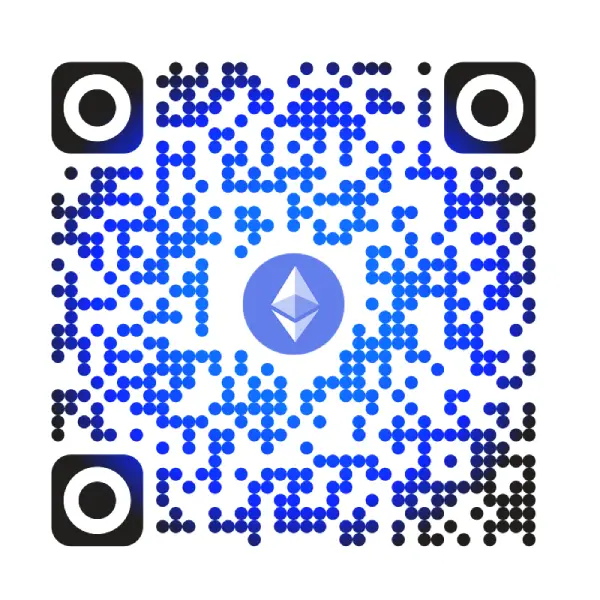
0xE7D047f1FA287f4ad298864535a62E45E789b445
Bitcoin Address

bc1q84w4qvaz5a2wne9xlf799s8we4q64a2yrttet8
Solana Address

52wokPhAncfZwGtTCHMycXGKKKAPENBw5yFTMewmpHQz

